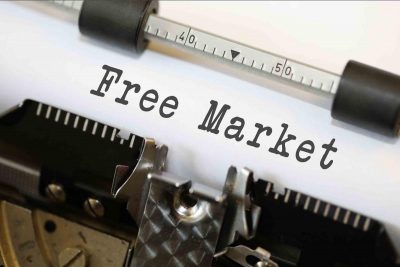The Chains of the “Free Market”. The Prices of Petrol Continue to Rise

All Global Research articles can be read in 51 languages by activating the Translate Website button below the author’s name.
To receive Global Research’s Daily Newsletter (selected articles), click here.
Follow us on Instagram and Twitter and subscribe to our Telegram Channel. Feel free to repost and share widely Global Research articles.
***
The “free market is the globalist thought Word, the yardstick by which the democracy degree of a country is measured. But it is precisely its preachers who demonstrate how free it actually is. The situation in Italy is emblematic.
While the prices of petrol and diesel continue to rise, causing a generalized increase in the cost of living paid by all of us, NATO and the EU forbid us to buy Libyan oil and petroleum products that the Government of Benghazi offers us at a bargain price. In Benghazi – Michelangelo Severgnini shows in his documentary broadcast by Byoblu on December 12 – petrol costs 3 euro cents per liter, about 60 times less than in Italy.
At the same time, we are forbidden to buy gas that Russia offers us at prices that are extremely lower than the ones we pay on the basis of quotations determined by the Amsterdam Stock Exchange, controlled by a powerful US financial group. The start-up of a new gas field in Western Siberia with a capacity of more than 320 billion cubic meters of recoverable reserves, takes Russian gas production to a record level.
Russia is increasingly exporting its cheap gas to China, India, and other Asian countries, as it is impossible exporting it to Europe. The European Union is moving to block after the Nord Stream sabotage the only gas pipeline that still carries Russian gas to Europe, up to Hungary and Austria, through the Balkans. At the summit in Tirana between the EU and the Western Balkans, Ursula Von der Leyen declared that the countries of this region must “get out of Putin’s gas blackmail“, i.e. block the arrival of Russian gas in Europe through the Balkans. “The Western Balkans – enjoined Von der Leyen in a threatening tone – “must decide which side they are on: either with the European Union or with Russia”.
*
Note to readers: Please click the share buttons above or below. Follow us on Instagram and Twitter and subscribe to our Telegram Channel. Feel free to repost and share widely Global Research articles.
This article was originally published on byoblu.
Manlio Dinucci, award winning author, geopolitical analyst and geographer, Pisa, Italy. He is a Research Associate of the Centre for Research on Globalization (CRG).

